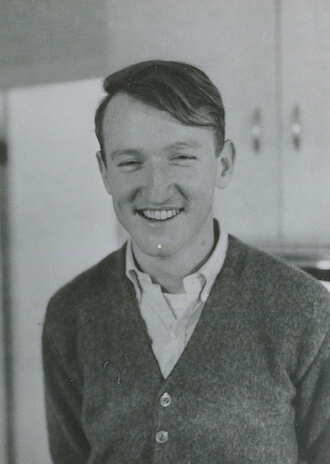Mackenzie Davis and Caitlin FitzGerald in Sophia Takal’s “Always Shine.” | OSCILLOSCOPE LABORATORIES
Sophia Takal’s intense, mesmerizing drama “Always Shine” features two friends, Anna (Mackenzie Davis) and Beth (Caitlin FitzGerald), who spend a weekend together in Big Sur. Both women are actresses, and while Beth is getting steady work in commercials and low-budget films, Anna is struggling to find an agent. There is professional rivalry between them — a fabulous scene has Anna showing Beth how to play a scene in a lousy horror movie she is considering — and their simmering anger and jealousy reach the boiling point during an episode that forces viewers to recalibrate their feeling toward both the characters and their actions.
In a recent phone interview, Takal admitted that making “Always Shine,” a cautionary tale about the film business, helped exorcise her own demons about being an actress.
“Growing up, watching movies, award shows, etcetera, actresses told me who I was supposed to be — how much I should weigh, how I should have my hair — and that left me unmoored as a teen and into my 20s,” she explained. “It was a mold I didn’t fit into. We value external validation rather than our internal self.”
Takal added, “We’re a celebrity-obsessed culture, in general.”
How women navigate these prevailing attitudes is at the heart of “Always Shine,” she said.
In “Always Shine,” director Sophia Takal probes the performance of womanhood
“My film is about the shame a number of women have about feeling like a failure, or that they are doing something wrong or are embarrassed that they feel that way,” Takal said. “When I accepted my nasty feelings, I was able to move through them and become self-actualized. I hope women will realize that it’s okay to have dark feelings and they are not alone in having them.”
In “Always Shine,” Anna and Beth have heart-to-heart talks and discuss career aspirations, but they are as easily fiendish as friendly with each other. Takal praised Davis and FitzGerald, saying each actress “had a deep understanding of the characters and material; they got the desire and shame each felt. They are strong, brave women who look at the embarrassing parts of themselves, and they are honest in pulling back the layers of their everyday life. We talked about how we presented our femininity and rage. We had conversations about those things so that they could bring texture to the roles.”
Davis and FitzGerald are both outstanding, their characters playing with the challenges of jealousy, peer pressure, and being patronized by men. In scenes where Anna or Beth cries, the release of emotion is triggered by events both real and from the make-believe world of their profession.
Takal explained that that the crying scenes were intended to spotlight an aspect of the characters’ femininity.
“I think that women feel a strong need to be perfect and portray themselves as being fine with everything and be docile and not rock the boat,” she said. “So when they experience shame or nasty, dark feelings, they want to put on a happy face, which is why tears come out at different times — for Anna especially. She feels like a failure, and she is masking her disappointment with herself. When she’s alone, she can process the pain and rejection and her not feeling what she is supposed to be.”
“Always Shine” plays with the narrative, the characters’ behavior, toward each other and in brief scenes with men, ranging from scared and flirty to sassy and empowered. The influence of 1970s films on Takal is clear in references to Robert Altman’s “3 Women” and John Cassavetes’ “Opening Night,” both of which explored the concept of “performance.”
“For me, ‘Always Shine’ was about two women having different performances of gender,” Takal explained. “The essential difference was how they carried themselves and how they presented themselves in the world.”
The magic of the film comes is seeing how the relationship between Anna and Beth unfolds as things reach a crescendo. Takal heightens the drama through her shrewd directing, allowing the actresses to break the fourth wall at times while also busting apart the audience’s expectations. Sex scenes between the women and male characters are discreetly filmed, forcing viewers to confront their own wish that they were able to better objectify the actresses. Similarly, the anticipated row between Anna and Beth does not play out in typical fashion.
“Why do catfights give you a thrill?,” Takal asked. “It’s inessential to the story here. By not showing it, it allows for a nice ambiguity in the final third. You look at the film with an emotional and intellectual eye.”
“Always Shine,” in its frank examination of female relationships and role-playing, challenges viewers to look deeper, and the effort is well worthwhile.
ALWAYS SHINE | Directed by Sophia Takal | Oscilloscope Laboratories Opens Nov. 25 | Village East Cinema, 181 Second Ave. at E. 12th St. | citycinemas.com






































